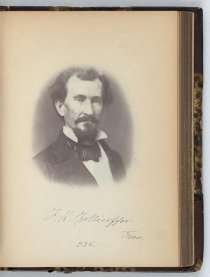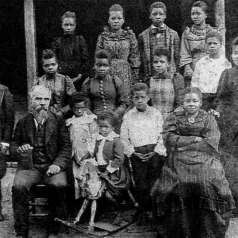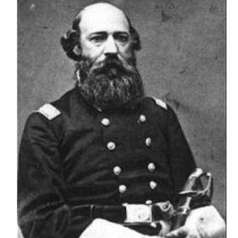
Confederate Brigadier General Felix K. Zollicoffer attempted to pacify Unionists in East Tennessee in 1861 before meeting defeat and death at the battle of Mill Springs in Kentucky.
Born in Maury County and educated at Jackson College, he became a printer, newspaper editor, and Whig politician. During the 1830s he served as a lieutenant of Tennessee volunteers in the Second Seminole War. After service as state adjutant general and comptroller and a state senator in the 1840s, Zollicoffer became a power in the Whig Party. In 1852 he won election to the U.S. Congress, where he served until 1859 as a states' rights champion.
In 1860, he supported Constitutional Union Party candidate John Bell for the presidency and urged Tennesseans to remain loyal to the Union. When the state seceded, however, he fully endorsed the decision, and Governor Isham Harris rewarded him with a brigadier generalship.
In July 1861, Harris ordered Zollicoffer and 4,000 raw recruits to Knoxville to suppress the East Tennessee resistance to secession. Zollicoffer treated peaceful Unionists fairly but imposed harsher measures after Union guerrillas burned railroad bridges in November.
In early autumn, Zollicoffer led most of his soldiers northward to protect the Cumberland Gap and the eastern end of the Confederate defensive line that reached from the Gap westward through Kentucky and Tennessee to the Mississippi River.
By early January 1862, he and his army had crossed to the north side of the Cumberland River near Mill Springs, Kentucky. This put the Confederates in a poor position to fight an advancing Union force commanded by General George H. Thomas. On January 19 at the battle of Mill Springs, Union soldiers routed the Confederates and killed Zollicoffer. The Confederate line in Kentucky soon collapsed and made Tennessee vulnerable to invasion. Zollicoffer was an able politician, but an ill-prepared and ill-fated commander.
Tools
Key Facts
- A former newspaper editor and Congressman, but not a gifted military commander.
- Set a standard of fairness in dealing with East Tennessee Unionists.






